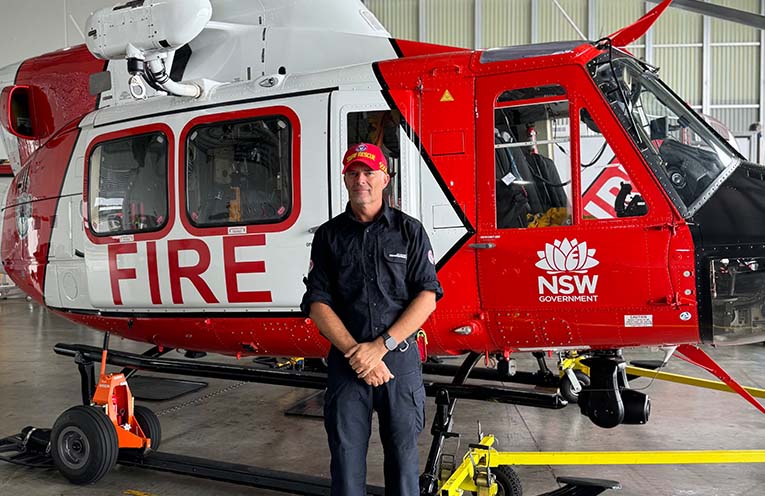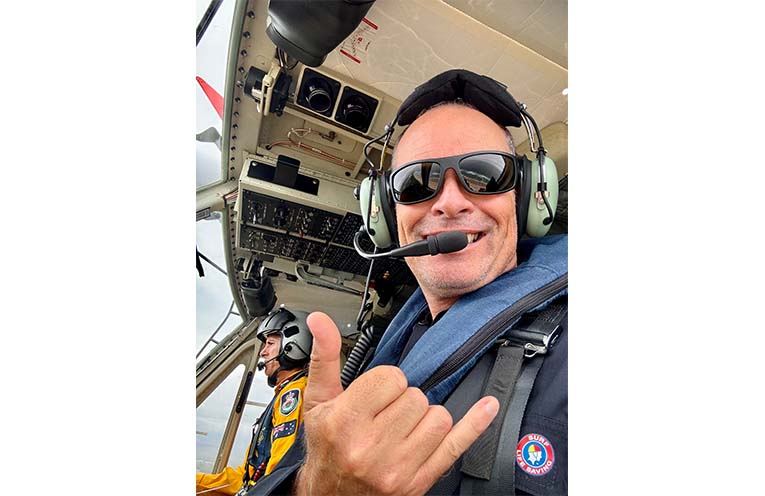
A RURAL Fire Service (RFS) aerial patrol from Red Rock to South West Rocks has taken on board a surf lifesaver to look out for rips and dangerous surf conditions, isolated swimmers and other threats such as sharks.
Covering 100 kilometres of coastline, the patrol has commenced running on busy days such as Saturdays, Sundays and public holidays during the warmer months.
 Advertise with News of The Area today.
Advertise with News of The Area today.It’s worth it for your business.
Message us.
Phone us – (02) 4981 8882.
Email us – media@newsofthearea.com.au
Volunteer surf lifesaver and Surf Life Saving NSW (SLSNSW) Duty Officer James McLennan has now joined the team.
“We are really lucky to have a great partnership with the RFS who have a really large number of volunteers just like us,” said Gary McKinnon, SLSNSW’s Emergency Management Manager.
“The RFS has got a helicopter at Coffs Harbour, particularly located for the bushfire season, and now that the season is softening for them, it’s an opportunity for us to partner with them to enable the aircraft to go up and down the coastline and look out to increase coastal safety.”
The project was trialled last year and is now in its second season, commencing last month and running until 7 April.
Joining the regular flights are RFS crew Hamish Heath and Leigh Pilkington, who is trained in search and rescue.
Jason Myhill works on the ground as the engineer servicing the craft.
“Through binoculars, the operators look for major rips or anything untoward, or any fishermen who have fallen in or sometimes just tricky or risky locations, or if there are any boats that have capsized,” said Gary.
“Anything unusual really, but particularly any shark sightings, especially near patrolled beaches.”
If the crew does detect a situation, the aircraft contacts the State Operations Centre in Sydney, then the relevant surf life saving club.
If there is an emergency, the message will be direct.
“Sometimes the beaches are more remote, where 4WDs have to get to.
“This creates additional risks as there is not a lifesaving club nearby,” Gary said.
“I want to remind people to swim between the flags and find beaches with patrolled locations, and if not, keep an eye on your friends and family.
“If fishing, wear a life jacket.
“There’s safety in numbers.”
By Mary KEILY

